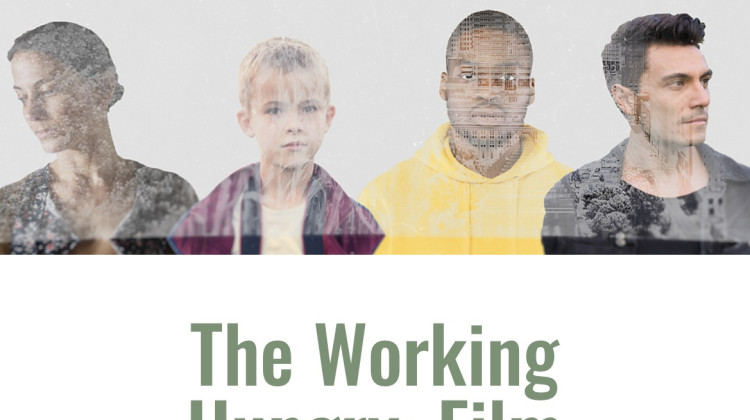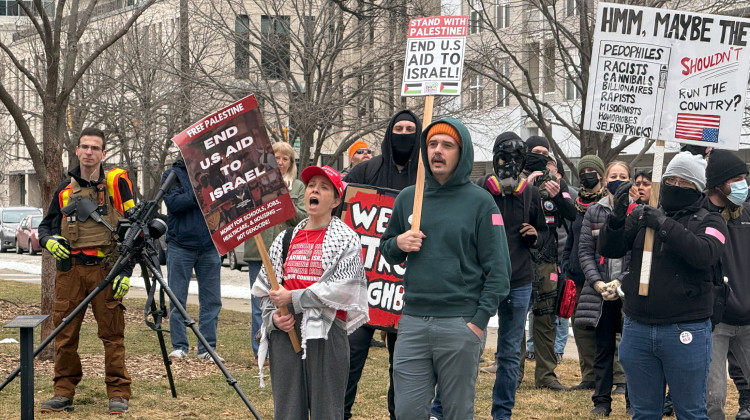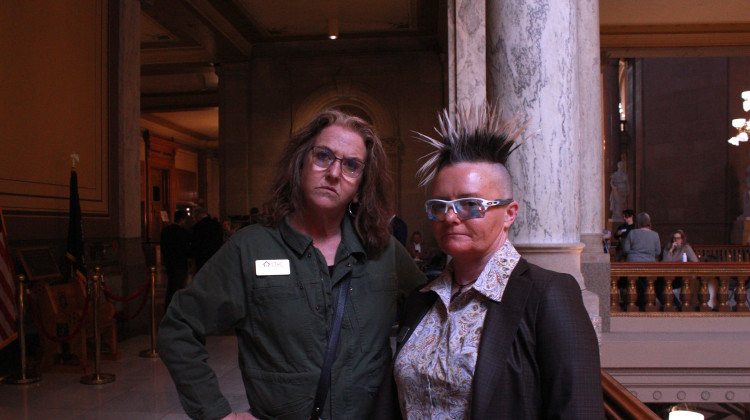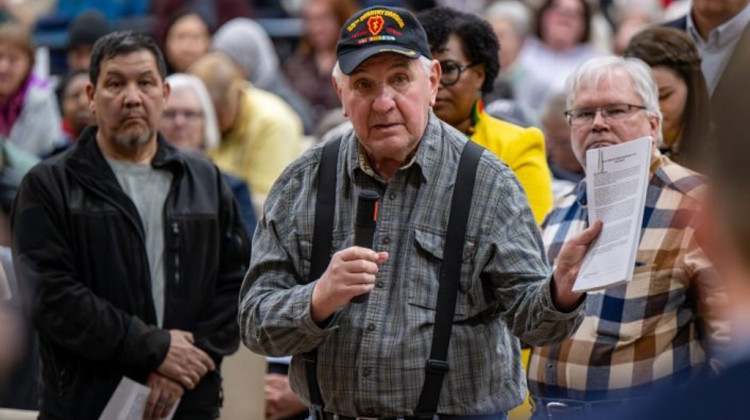A new documentary about food insecurity in Indiana is being shown and paired with panel discussions around the state. The Working Hungry explores the lives of Hoosiers who are employed but still unable to meet food needs for their families. WFYI’s Jill Sheridan sat down with film co-producer Dave Miner to talk about the issue.
Sheridan: Why did you want to get involved with this project? And just the importance of it, because as you mentioned, you know, you have been involved in this issue of hunger in Indiana for a very long time.
Miner: Yeah, when the last recession hit – so back in 2008, a group came together in Indianapolis called the Indy Hunger Network, which brought together all the major players. And we've been working together for 12 years now and have made a lot of improvements to food assistance in Marion County. In fact, so much so that when the pandemic hit and the need for food doubled, in just three months’ time, we actually met that need.
But behind the scenes is the fact that so many people need food assistance. But we have to do something more, because the number of people needing this food assistance is not going down. The issue here is not how well food pantries are working or you know, any of those kinds of things. It's really, why are so many people hungry in the first place. And turns out, most of those people are working people.
Sheridan: What did you really hear from the people that you focus on in this film? You know, what were some of the things that really impacted you?
Miner: One of the things that impacted me the most was actually not something we heard in the filming. It was in trying to find families who would participate. We had a wonderful neighborhood center up in Plymouth, and they really – they know their people. They talked to 10 families to see if someone would participate. And they all said no. Why? Because stigma. Because they, or their children would be, you know, treated as less than if they admitted that they struggle. And so the stigma, which adds to people's problems, was one of the big things that struck me.
Sheridan: So now you've had the film, shown a number of times at different places across Indiana, what's it sort of response that you're getting from people that are seeing the film?
Miner: I was really gratified. The wife of one of the families that's in the film said she was nervous about it. I went and sat with them, when they watched it for the first time, which was wonderful for me. And afterwards, she said, ‘You got this.’ The interesting part for me is folks who aren't in that world all the time – are we reaching them. And we're hopeful – we have a lot of showings scheduled around the state in small groups with a moderated discussion to follow. And I'm really hopeful that people will watch the film and wrestle with it. Because we've tackled head on some of the common stereotypes, many of the common stereotypes that are wrong, and that prevent us from good public policy, for example.
Sheridan: It's so hard right now with inflation.
Miner: Oh, yeah, it's killing people. Absolutely.
Sheridan: With the showings, you mentioned there are panel discussions. Just the importance of that really, you know, getting people that are involved in the system and then are not involved in the system. And coming to an understanding.
Miner: Yeah, very, very important. I was thinking of one that I was at, a woman was there who worked directly with somebody in poverty and was personally involved in trying to get them out. And we got talking about wages, and it was just, you know, it was complete revelation for her.
So, you know, you can get people ready, do job readiness and skills training. But if they end up in a job where they can't feed their families reliably, that's not enough. We said in the film that the most common jobs in Indiana are not paying a living wage.
So what are we doing as a city, as a state, as a nation by, you know, employing people in ways that don't allow them to make it.
Sheridan: Thank you very much for being here today. We really appreciate your insight.
Miner: Thank you.
Miner worked on the new documentary The Working Hungry. He also works with the Indy Hunger Network, Bread for the World, and now the Good Wages Initiative in Marion County.
Contact WFYI city government and policy reporter Jill Sheridan at jsheridan@wfyi.org. Follow on Twitter: @JillASheridan.
 DONATE
DONATE








 Support WFYI. We can't do it without you.
Support WFYI. We can't do it without you.